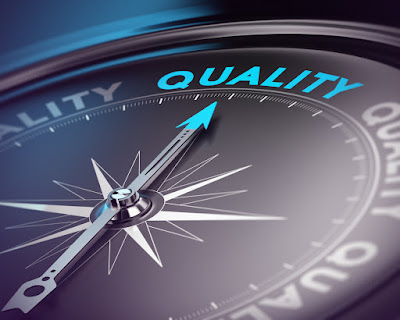Stages of Quality Control in Food Industry
Quality control is an extremely important aspect of food industry. This industry deals with very sensitive products and it’s necessary to maintain quality standards and comply with various regulations. In case of food products, most of the people tend to stick to the same brand which matches their expectations and are perceived as of good quality. Companies in food industry need to be very careful as even a small instance of quality compromise could bring them bad reputation and ruin their image. Thus, following the proper procedures in various stages of quality control in food industry is very important if you want to establish yourself as a good and reliable brand. Quality control aims at identifying and correcting the defects in finished products. It is done by identifying the source of the problem and eliminating it to achieve the expected quality standards. Quality control involves regular inspection of quality management and there is usually a specific team which takes care of it.
Let’s have a look at the basic stages of quality control in food industry:
- Quality Control in Raw Materials
To maintain quality standards in food industry, the control should be properly achieved at the very first level which is raw materials. They are the basic ingredients that make up the food products. Raw materials can include fruits, vegetables, dairy products and many more. Before reaching the food processing plant the raw materials need to meet certain guidelines.
2. Quality Control in Food Processing
Maintaining quality during food processing includes preventive as well as corrective measures. Preventive measures help in avoiding or resolving quality issues due to outside factors like storage, environment and other such conditions. Many manufacturers follow Hazard Analysis Critical Control Point (HACCP) system which focuses on food safety, spoilage and many other potential food risks. ISO 9000 standards and Total Quality Management (TQM) are also related to quality control in food manufacturing process.
3. Quality Control in Finished Products
This deals with maintaining quality standards in the final product, which is the packaged food that finally reaches the consumers and suppliers. Different kinds of testing are done in this stage including physical tests, visual observations, chemical tests etc. In order to maintain health and sanitation controls, microbiological testing is important and effective. Stringent monitoring process is required which helps in data collection, analysis of trends and maintenance of records. This stage involves internal as well as external inspectors. When the inspectors find red flags for any of the products at any stage of inspection, immediate corrective actions should be taken. Varied systems are designed for this, which help in reducing safety and hazard risks.
Quality control is an essential aspect of food industry and the procedures need to be implemented and managed across various stages including sourcing, processing and packaging. Apart from complying with the laws and regulations regarding nutritive value, companies must also adhere to the requirements for shelf-life, taste, use of preservatives and many more factors. To meet the demands of customers as well as authorities the companies must strictly follow the guidelines and take necessary measures to maintain quality standards.




Comments
Post a Comment